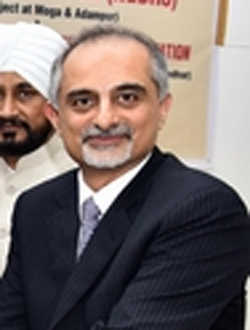Rajmeet Singh
Tribune News Service
Chandigarh, February 27
The Punjab Government has abolished the 11-member Subordinate Service Selection Board (SSSB) without providing an alternative mechanism to recruit junior officials in various state government departments. The orders were issued by Chief Secretary Karan Avtar Singh today.
He also ordered the “immediate relieving” of one of the members of the board.
(Follow ; and )
Though the Chief Secretary could not be reached for his comments, sources say the board may be reconstituted with fresh terms and conditions to adjust the political appointees as members.
All members of the “abolished” board, including the chairman, were appointed by the previous SAD-BJP government. Though “coercion” had been used asking all members to step down voluntarily, say sources, this apparently did not work.
Gurmeet Singh Daduwal, who was appointed chairman in 2016, said he was yet to get the orders. However, Anwar Maseeh, member of the board who was removed today, said he had heard about the orders, but had not received these yet.
The move will adversely hit the ongoing recruitment process for filling over 2,000 vacancies for non-gazetted posts. Sources reveal that while the process to recruit 400 steno-typists was midway, applications to recruit 1,800 clerks, excise and taxation inspectors and kanungos had already been received and the process was underway. Kamal Kumar Garg, secretary of the board, said: “Since I am not aware about the orders, I cannot comment on the related issues.”
Incidentally, during the previous SAD-BJP government, recruitments in various departments were done by Panjab University and Thapar University as it was felt that the board did not deal with the recruitment process professionally.
The decision to abolish the board comes within a few months of the government winding up the Right to Service Commission and putting in place the Punjab Transparency and Accountability in Delivery of Public Services (including electronic service delivery), Ordinance, 2017.
Unlock Exclusive Insights with The Tribune Premium
Take your experience further with Premium access.
Thought-provoking Opinions, Expert Analysis, In-depth Insights and other Member Only Benefits
Already a Member? Sign In Now










